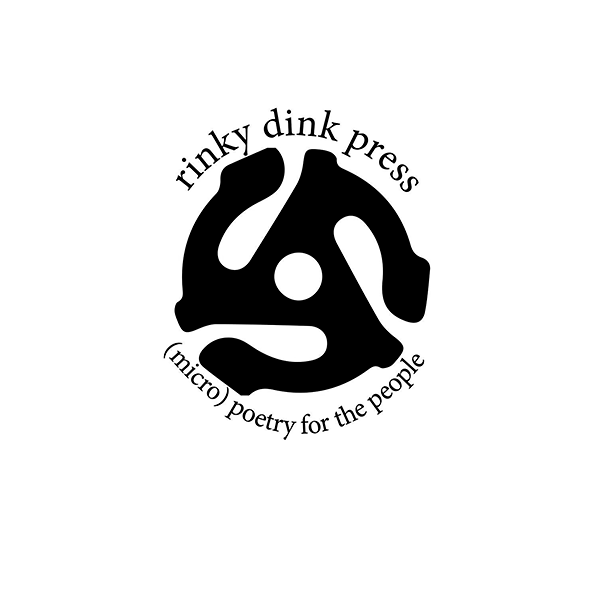In 1949, Muriel Rukeyser wrote of a “fear of poetry” turning readers against verse. But if poetry came in a smaller package, perhaps it would seem less intimidating—that’s the hope of the editors behind rinky dink press, which publishes poetry micro zines in Phoenix. At 2.75 x 4.25 inches in size and six pages long, each petite volume embodies rinky dink’s mission “to get poetry back in the hands (and pockets) of the people.” Founded in 2015 by Rosemarie Dombrowski, Phoenix’s poet laureate, rinky dink grew from an undergraduate course Dombrowski taught at Arizona State University.
The final project—to create an original poetry micro zine—was so popular with the class that it spawned the idea for a micro press. “The students wanted to continue to work in that format because we believed that it would make poetry more accessible and interesting,” Dombrowski says. “Honestly, we hoped that the packaging would trick people into reading poetry.” With four students from her class serving as an editorial board, Dombrowski launched rinky dink. More than eighty micro zines later, the press is now co-run by Dombrowski and Shawnte Orion, who along with the other editors produce the micro zines by hand, folding a single sheet of treeless sugarcane-waste paper for each collection in an initial run of twenty-five copies. The editors also design the zine covers and sometimes interior artwork, which features digital collages, stock photos, or original sketches. Since the onset of the pandemic, rinky dink has been publishing ten micro-zine titles per year. Recent volumes include Portrait of My Mother Living With Mental Illness by Emily Hoover—an emotionally raw look at the author’s troubled mother—and Everything Becomes Bananas by Halsey Hyer, a darkly humorous take on living through an apocalyptic era. Submissions, accepted via e-mail, are free and will be open during June and July for a series to be released in the fall. “We love concise, efficient language and sequences that form a cohesive experience,” Dombrowski says. “But we also love being surprised by brilliance in all of its forms.”










